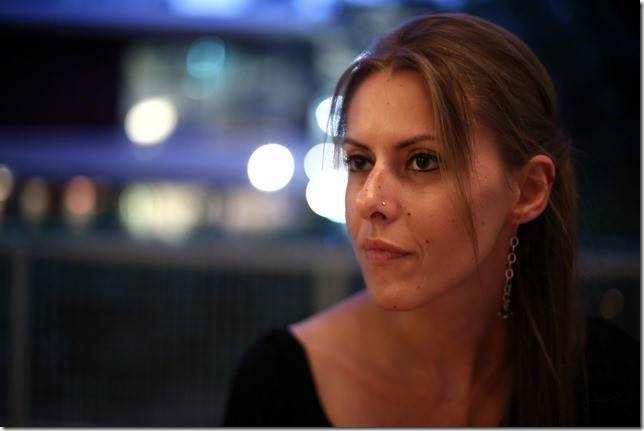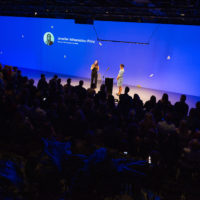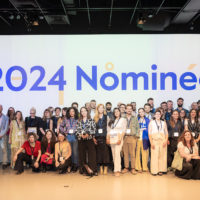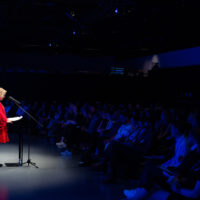Interview with 3x nominee Maria Louka
Maria Louka holds the proud record of being nominated three times for the European Press Prize. She writes beautiful and moving pieces on social behaviour and the youth in today’s Greece, sparking public debates. We asked her about her nominations, the current media landscape in Greece and her journalistic career.
“Perhaps this is the ‘magic’ of journalism, namely the fact that each time you discover the world again, in particularly those aspects of it that are in the shadows.”
Why did you enter the European Press Prize contest?
I decided to take part in the European Press Prize contest because it is the most important institution at a European level that recognizes the value of investigative journalism and constructive opinion writing. It is very important that at a time that internationally the press is under attack and faces multiple challenges, to encourage journalists to continue their effort. The European Press Project highlights positive models of journalistic work and creates a culture of dialogue, conversation and cooperation between journalists.
How does it feel to have been selected 3 times for the shortlist?
I am very happy that I have been three times short-listed for the European Press Prize. All three texts that were chosen were very important for me and in particular “Greece’s lost generation” (that appeared in the Greek edition of VICE), which is an article based on my personal experience, was written as a confrontation with this experience and reflects –I think– the experience of thousands of young persons in Greece in the period of crisis. After each nomination, I felt a little stronger. However, apart from that, this gave me the possibility to be part of the very creative community of the European Press Prize and to come in contact with important colleagues from all over Europe. This has been a very important experience for anyone who has ever been nominated.
Could you describe the media landscape in Greece?
After 7 years of economic crisis, Mass Media in Greece seem like a waste and dry land where a culture of fear and the absence of vision prevail. The economic crisis was combined with the structural problems of Greek Press and created a work environment of extreme precariousness with thousands of lay-offs, many violations of employees’ rights and increased interventions and censorship by Media bosses. However, there exists a new, Greek generation of investigative journalists that, despite all the hardship, have maintained their independence and produce reporting of high quality and in the public interest. The revelation of criminal character of the Nazi organization Golden Dawn and the coverage of the refugee crisis exemplify the huge contribution that independent journalism can have to the quest for truth.
What was the most important moment for you in your journalistic career?
I have worked as a journalist for 8 years and I feel that every story I have written has a unique value for me. However, if I had to choose some moments of my career, I would chose the investigative work I did in 2011 on the ecological and social consequences of the projects for gold-mining in Chalkidiki, the revelations I made along with my colleague Aleka Zoumi regarding the infiltration of football clubs by the neo-Nazi organization Golden Dawn a few days after the murder of Pavlos Fyssas, an anti-fascist artist by a member of Golden Dawn, and the project I have been working during the past two years with the photographer Alexandros Katsis on occupied spaces offering hospitality to refugees in Athens during the refugee crisis.
What advice would you give to aspiring journalists?
I do not think I am in a position to offer advice in the sense that I am still learning and I am still surprised with every new story. Perhaps this is the “magic” of journalism, namely the fact that each time you discover the world again, in particularly those aspects of it that are in the shadows. I would just say that what counts in this work is passion and meticulous research.
—
One of Maria Louka’s most recent stories has been about an unemployed Greek family who opened up their home to a family of refugees. She wrote the story for VICE. You can read it in both Greek and English.





